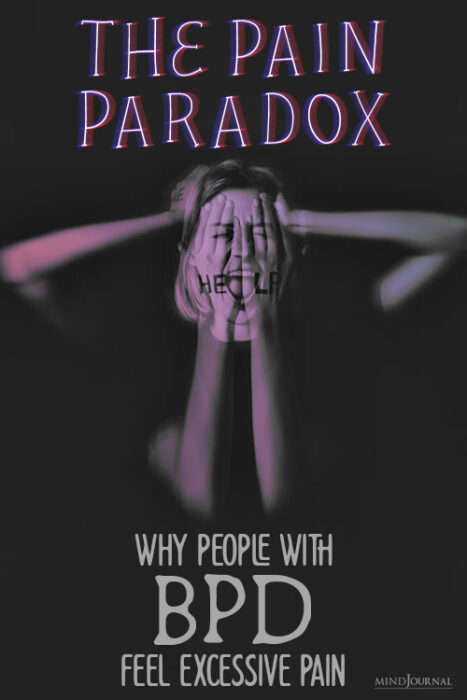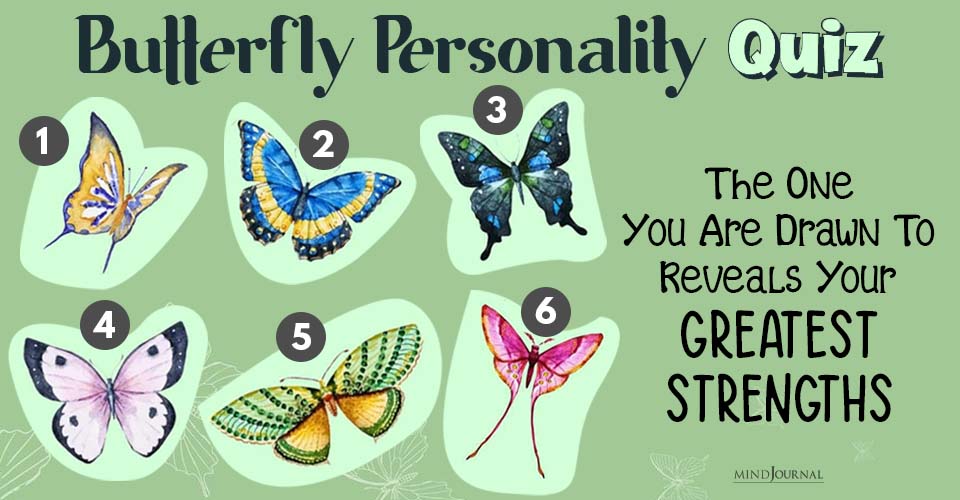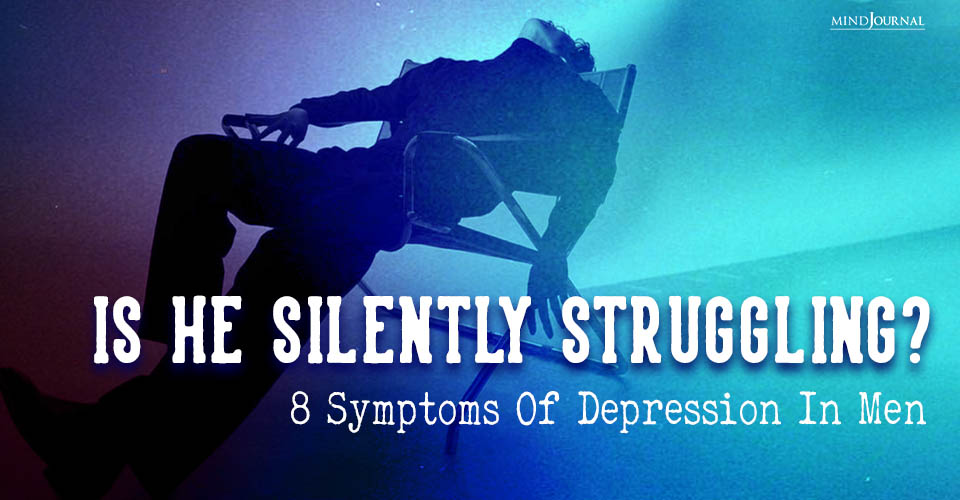How much pain is too much? Do you ask yourself, “Am I overreacting, or is something truly wrong?” Explore the connection between Borderline personality disorder and the pain paradox to find answers!

Read more here: What Is Quiet BPD? 9 Signs You Are Suffering In Silence
As I recover from my recent surgery, I continue to experience periodic pain in my abdomen where the surgical incisions were made. The pain is not coming from the incisions but seems to be coming from deep within my belly. Less than a week after the surgery, I was doing well, managing my post-op pain only with Tylenol, when the pain suddenly became intolerable, and I went to the emergency room. They did a CT scan of my stomach and couldn’t find anything.
I saw the surgeon a couple of days later and he also had no explanation. The pain has decreased some and I manage it with Toradol which doesn’t make me drowsy. I wonder how long it’s going to last, and if it is me somatizing—or if the doctors somehow missing something?
I began to wonder about my level of pain tolerance. Pain is so subjective. My brother underwent an emergency appendectomy at the same time I had my surgery; he had tolerated his pain for two days before he went to his PCP and she sent him to the emergency room. It turned out his appendix had ruptured.
I think back to when I was symptomatic with borderline personality disorder (BPD) and actively cutting myself. Like so many individuals who are diagnosed with BPD, I didn’t feel the pain of the cutting; I cut to numb myself from the intolerable emotional pain I was constantly feeling. I still have scars on my forearms and upper arms, though I never needed medical attention for my cuts.
In a study by Randy Sansone and Lori Sansone, “Borderline Personality and the Pain Paradox,” the authors state: “The intersection of BPD and pain is a complex one. On the one hand, patients with BPD appear to be impervious to acute pain, which is commonly reported during episodes of self-mutilation, such as cutting.
On the other hand, clinical experiences and empirical findings with chronic pain suggest just the opposite—that patients with BPD are more sensitive to pain than individuals without this Axis II disorder.”
I stopped cutting when I entered transference-focused psychotherapy (TFP) with my then-psychiatrist, Dr. Lev. When I initially agreed to work with her, I signed a contract and one item on the contract was if I cut myself, even a scratch, I had to seek medical attention before I could return to therapy.
I pictured myself going to a doctor with a scratch on my arm and feeling embarrassed. The last time I actually cut myself was in 2006 when to retaliate against Dr. Lev because she hospitalized me, I snuck razor blades into the hospital and cut myself early one morning when the hospital staff wouldn’t let me sit in the hallway and journal. It was a stupid thing to do as it only got me put on one-to-one observation for a week.
I started seeing the neurologist who is my headache specialist for my migraines in 2013. She is also board-certified in psychiatry. Following my suicide attempt in 2014, she could tell I was not myself and I confided in her, including my history of BPD. I had come such a long way working with Dr. Lev using TFP that she had a difficult time reconciling my diagnosis of BPD with the person who stood before her. I don’t know if she held some of the misconceptions of patients diagnosed with BPD: manipulative, attention-seeking, etc.
At that time, I was seeing her for Botox injections every three months and nerve block/trigger point injections every two weeks. Both treatments involved multiple injections in the face, head, neck, and shoulders. The injections never bothered me. When her new fellows started every July, sometimes she would ask me if I minded if they practiced their technique on me as she knew I wouldn’t flinch. I always said I didn’t mind.
A study from earlier this year echoes the results cited above and states that “BPD has been associated with greater chronic and everyday pain and, in contrast, reduced sensitivity to acute pain.
The Pain Paradox: Why People with Borderline Personality Disorder Feel Excessive Pain
This apparent contradiction has been termed the ‘pain paradox’ of BPD.” I carry among my myriads of medical diagnoses fibromyalgia and an autoimmune illness (undifferentiated connective tissue disease), both of which cause chronic pain.
For fibromyalgia, no medication is effective and for UCTD, I am prescribed Plaquenil for which I need to have biannual eye exams for it carries a risk of harming the retina. My rheumatologist recently lowered the dose which I understood the need for as I have been on a high dose for years. It’s a balancing act between pain and risk level.
As the new study reports: “People with BPD utilize healthcare services at rates greater than the general population, and yet, many who seek treatment for chronic pain experience barriers to accessing treatment, which again underlines the need for scientific attention. Chronic pain is a subjective experience and medical providers must rely on patient reports of their pain experiences. However, patients with BPD may be perceived as untrustworthy by healthcare providers, even when their diagnosis is not known.”
I know that I access healthcare services more frequently than others and don’t like that about myself. I’ll debate at home before calling the doctor’s office or going to the emergency room. The last time I went to the ER, I debated into the evening and didn’t arrive until 10 PM. I waited three hours to be seen by a physician’s assistant and by the time I was discharged and got home, it was 6 AM and it was time to jump in the shower and get ready for work.
Do I try harder to tolerate pain? I get into a debate with myself: What if it is something? What if it’s nothing? With my extensive history, I can never be sure. I think of the times I have gone and I was admitted because it was significant. And I think of the times I’ve gone and I was discharged because there was nothing. It’s an ongoing dilemma with no good answer.
Read more here: 7 Surprising Positive Aspects Of BPD
So, what are your thoughts on BPD pain paradox? Do you think there is a link? Tell us in the comments below!
Written by Andrea Rosenhaft LCSW-R
Originally appeared on: Psychology Today














Leave a Reply
You must be logged in to post a comment.